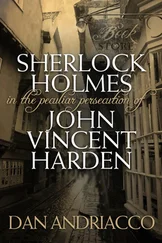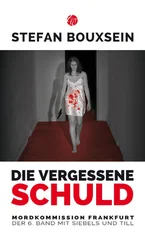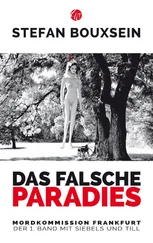Stefan Bachman - The Peculiar
Здесь есть возможность читать онлайн «Stefan Bachman - The Peculiar» весь текст электронной книги совершенно бесплатно (целиком полную версию без сокращений). В некоторых случаях можно слушать аудио, скачать через торрент в формате fb2 и присутствует краткое содержание. Жанр: Фэнтези, Детективная фантастика, на английском языке. Описание произведения, (предисловие) а так же отзывы посетителей доступны на портале библиотеки ЛибКат.
- Название:The Peculiar
- Автор:
- Жанр:
- Год:неизвестен
- ISBN:нет данных
- Рейтинг книги:5 / 5. Голосов: 1
-
Избранное:Добавить в избранное
- Отзывы:
-
Ваша оценка:
- 100
- 1
- 2
- 3
- 4
- 5
The Peculiar: краткое содержание, описание и аннотация
Предлагаем к чтению аннотацию, описание, краткое содержание или предисловие (зависит от того, что написал сам автор книги «The Peculiar»). Если вы не нашли необходимую информацию о книге — напишите в комментариях, мы постараемся отыскать её.
The Peculiar — читать онлайн бесплатно полную книгу (весь текст) целиком
Ниже представлен текст книги, разбитый по страницам. Система сохранения места последней прочитанной страницы, позволяет с удобством читать онлайн бесплатно книгу «The Peculiar», без необходимости каждый раз заново искать на чём Вы остановились. Поставьте закладку, и сможете в любой момент перейти на страницу, на которой закончили чтение.
Интервал:
Закладка:
Nothing happened.
He threw a frantic look back at the door. The footsteps had stopped. Someone was right there, right on the other side, breathing. Bartholomew heard a hand being placed on the knob. The knob began to turn, turn. Click. Locked.
Panic slithered in his throat. Trapped. Get out, get out, get out!
For a moment the person outside was silent. Then the knob began to rattle. Slowly at first but becoming more insistent, getting stronger and stronger until the whole door was shivering in its frame.
Bartholomew stamped his foot. GO! he thought desperately. Work! Take me away from here! His chest began to ache. Something was pricking the back of his eyes, and for a moment he wanted nothing more than to sit down and cry like he had when he was little and had lost hold of his mother’s hand at the market.
The person outside began to beat viciously against the door.
It wouldn’t do any good to cry. Bartholomew ran his hand over his nose. A crying thief would still be hanged. He looked down at the markings all around him and tried to think.
There. A section of the chalk circle was smeared across the floor. The ring didn’t go all the way around anymore. He must have ruined it when he fell.
Dropping to his knees, he began scrabbling the chalk dust together, piling it in a rough line to close the circle.
A dull snapping sounded from the door. The wood. Whoever is outside is breaking down the door!
Bartholomew couldn’t hope to copy all the little marks and symbols, but he could at least complete the ring. Faster, faster. . His hands squeaked against the floor.
The door burst inward with a thunderous crash.
But the wings were already enveloping Bartholomew, the darkness howling around him, and the wind pulling at his clothes. Only something was different this time. Wrong. He felt things in the blackness; cold, thin bodies that darted against him and poked at his skin. Mouths pressed up to his ears, whispering in small, dark voices. A tongue, icy wet, slid over his cheek. And then there was only pain, horrid searing pain, tearing up his arms and eating into his bones. He kept down his scream just long enough for the room to begin to flit away into the spinning shadows. Then he shrieked along with the wind and the raging wings.
CHAPTER IV
Nonsuch House looked like a ship-a great, stone nightmarish ship, run aground in the mire of London at the north end of Blackfriars Bridge. Its jagged roofs were the sails, its lichened chimneys the masts, and the smoke that curled up from their mouths looked like so many tattered flags, sliding in the wind. Hundreds of small gray windows speckled its walls. A pitted door faced the street. Below, the river swirled, feeding the clumps of moss that climbed its foundations and turning the stone black with slime.
A carriage was winding its way toward the house through the evening bustle of Fleet Street. Rain was falling steadily. The streetlamps were just beginning to glow, and they reflected on the polished sides of the carriage, throwing tongues of light onto the windows.
The carriage shuddered to a halt in front of Nonsuch House, and Mr. Jelliby ducked out, leaping a puddle to get into the shelter of the doorway. He brought up his walking stick and knocked it twice against the pockmarked black wood. Then he wrapped his arms around himself and scowled.
He didn’t want to be here. He wanted to be anywhere but here. Scattered on his desk at home were gilt-edged cards and monogrammed invitations that would gain him entrance to a whole parade of lively and fashionable drawing rooms. And what was he doing but standing in the wind and rain outside the house of Mr. Lickerish, the faery politician. There ought to be laws against such things.
Drat these ale meetings. . They were a very old tradition, but that didn’t mean Mr. Jelliby had to like them. Members of the Privy Council, two or three at a time, met at each other’s townhouses for drink and pleasant discussion, in the hope that it would breed fellowship and respect for differing opinions. Mr. Jelliby’s scowl deepened. Fellowship, indeed. Perhaps it had done so four centuries ago when the members still drank ale. But it was all tea these days, and the meetings were frosty affairs, much dreaded by host and guests alike.
Mr. Jelliby stood up straighter. A rattling of locks had begun on the other side of the door. He must at least look as if he didn’t want to be anywhere else. He raised his chin, folded his gloved hands across the head of his walking stick, and assumed an expression of pleasant inquiry.
With a final, thudding clank , the door opened. Something very tall and thin thrust its head out and blinked at Mr. Jelliby.
Mr. Jelliby blinked back. The creature leaning out of the shadows of the doorway must have been seven feet tall, and yet it was so bony and starved-looking it seemed barely able to support its own weight. The pale skin on its hands was thin as birch bark, and all the little knuckles pushed up underneath. He (for it was a he, Mr. Jelliby saw now) wore a shabby suit that ended several inches above his ankles, and the air around him smelled faintly of graveyards. But that was not the oddest part about him. One side of his face was ensconced in a web of brass, a network of tiny cogs and pistons that whirred and ticked in constant motion. A green glass goggle was fixed over the eye. Every few seconds it would twitch, and a lens would flick across it like a blink. Then a thread of steam would hiss out from under a screw in its casing.
“Arthur Jelliby?” the creature inquired. He had a high, soft voice, and his other eye-the slanted, faery eye-squeezed almost shut when he spoke. Mr. Jelliby did not like that at all.
“Ah. .” he said.
“Enter, if you please.” The faery ushered him in with a graceful sweep of his hand. Mr. Jelliby stepped in, trying not to stare. The door boomed shut behind him, and instantly he was plunged into silence. The clatter of Fleet Street was cut off. The noise of the rain was very far away, only a faint drum at the edge of his hearing.
Mr. Jelliby’s coat dripped onto black-and-white tiles. He was standing in a high, echoing hall, and the shadows pressed around him, heavy and damp from the corners and doorways. There was not a lit wick to be seen, not a gaslight or a candle. Mildew streaked the paneling in long, green trails. Faded tapestries clung to the walls, barely visible in the gloom. A grandfather clock with little faces where the numbers should have been stood silently against the wall.
“This way, if you please,” the faery said, setting off across the hall.
Mr. Jelliby followed, tugging uncertainly at his gloves. The butler should have taken them. In a proper house he would have, along with Mr. Jelliby’s hat and overcoat. Mr. Jelliby was suddenly aware of how loud his shoes sounded, slapping wetly against the floor. He didn’t dare look, but he imagined himself leaving a slippery trail over the tiles like a massive slug.
The faery butler led him to the end of the hall and they began to climb the stairs. The staircase was a mass of rotting wood, carved with such cruel-looking mermaids that Mr. Jelliby was afraid to put his hand on the banister.
“Mr. Lickerish will be seeing you in the green library,” the butler said over his shoulder.
“Oh, that’s nice,” Mr. Jelliby mumbled, because he didn’t know what else to say. Somewhere in the house the wind moaned. A casement must have been left open, forgotten.
The oddness of Nonsuch House was unsettling him more with every step. This was obviously not a place for humans. The pictures on the walls were not of landscapes or ill-tempered ancestors as in Mr. Jelliby’s house, but of plain things, like a tarnished spoon, a jug with a fly sitting on it, and a bright red door in a stone wall. And yet they were all painted with so much shadow that they looked decidedly sinister. The spoon might have been used to murder someone, the jug was full of poison, and the red door doubtless led into a tangled garden of flesh-eating plants. There were no photographs or bric-a-brac. Instead there were many mirrors, and drapes, and little trees growing from cracks in the paneling.
Читать дальшеИнтервал:
Закладка:
Похожие книги на «The Peculiar»
Представляем Вашему вниманию похожие книги на «The Peculiar» списком для выбора. Мы отобрали схожую по названию и смыслу литературу в надежде предоставить читателям больше вариантов отыскать новые, интересные, ещё непрочитанные произведения.
Обсуждение, отзывы о книге «The Peculiar» и просто собственные мнения читателей. Оставьте ваши комментарии, напишите, что Вы думаете о произведении, его смысле или главных героях. Укажите что конкретно понравилось, а что нет, и почему Вы так считаете.












